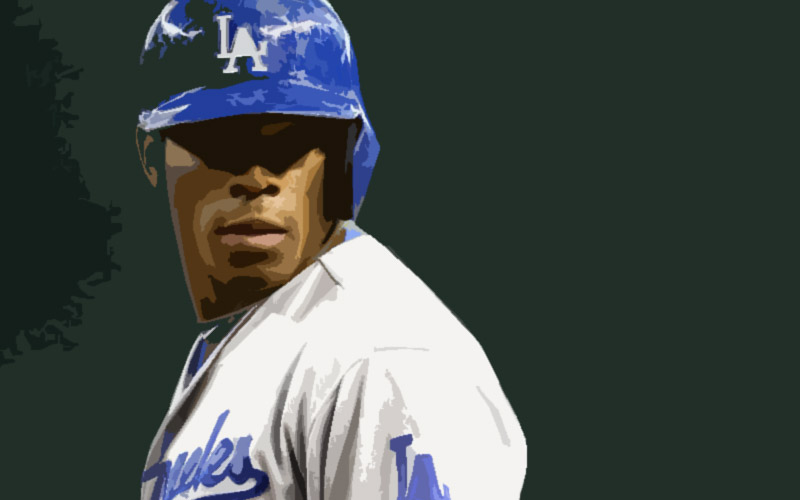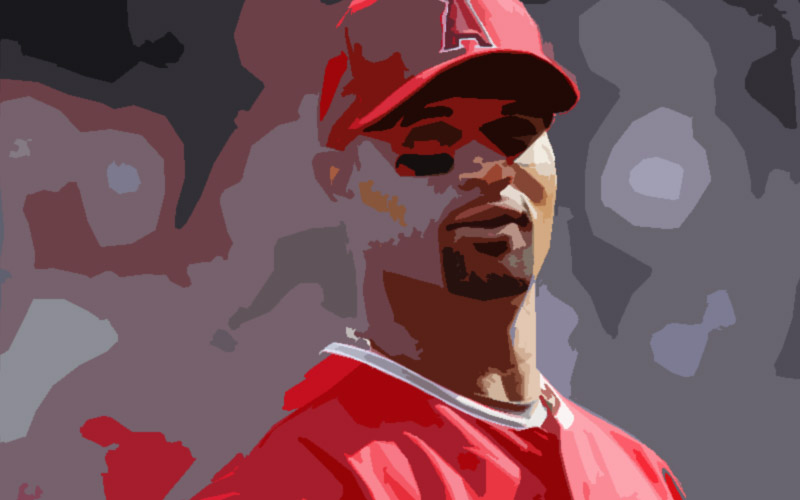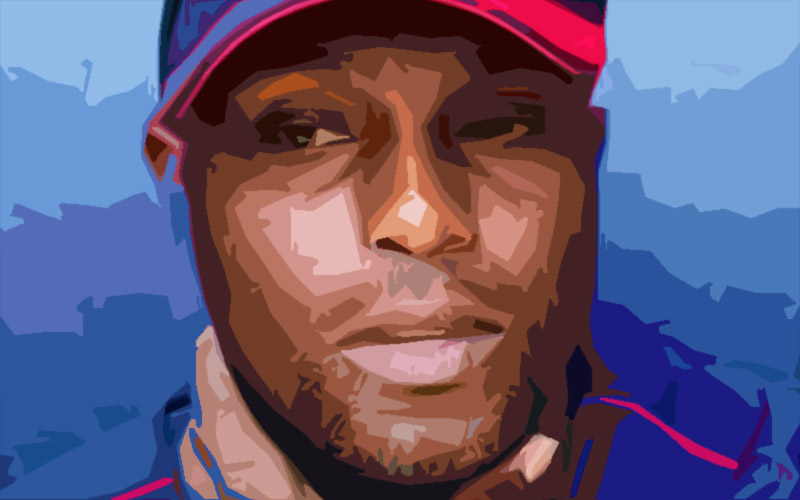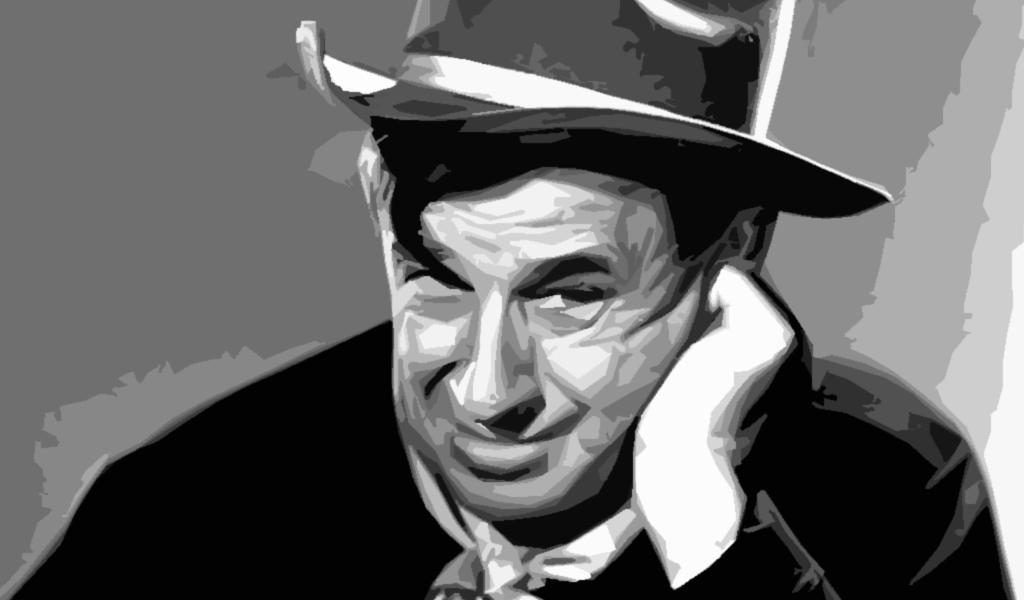“Good judgement comes from experience, and a lot of that comes from bad judgement.”
— Will Rodgers, American Cowboy and Humorist
At 84, my father can still recite much of the obscure poetry he learned as a high school sophomore growing up in Wenatchee, Washington. For years, his children and grandchildren have rolled their eyes at his animated recitals, to which he has responded with feigned shock at the fact that none of us were interested in, let alone understood, what the hell he was saying. My dad has been amazingly well read his entire life and in addition to reciting poetry, has shared quotes from essayists, humorists, and writers of other styles and disciplines for as long as I can remember. Will Rodgers’s quote is one I heard at least a hundred times as a kid. And while poetry bounces off me like a hot racquetball, the humorous truth in Rodgers’s simple statement has enabled it to stick in my head like a barnacle for nearly fifty years.
Alas, the proverbial acorn does not fall far.
During a twenty-year career spent coaching college baseball, I must have quoted Rogers at least as much as my dad did when I was growing up. Players between the ages of 18 and 22, who were testing the boundaries of their newfound freedom from their parents, provided ample opportunity to educate, and served as a captive audience on Monday mornings when the weekend campus incident reports appeared on my desk. The quote, whether or not it sunk in to the young men sitting across my desk at the time, was a poignant reminder of the lessons I had learned myself at that age. To Rodgers’s point, that’s how we learn.
The baseball field provides another great place where life’s wisdom can be gained.
My dad’s boyhood idol was Lou Gerhig, the Iron Horse who is considered to have been both a gentleman and arguably the greatest player who ever lived. Gerhig, my dad regaled when I had made a boneheaded play, made every mistake possible. But he never made the same one twice — the benefit of experience.
 Since entering the National League with the Los Angeles Dodgers in 2013, Cuban-born Yasiel Puig has thrilled baseball fans with a level of talent that is difficult to match, even at the Major League level. Yes, one could certainly argue that his performance has steadily declined since his rookie season, but Puig’s chest of physical tools is impressive. He can run. He’s got power. And his arm is a strong as a Tavor assault rifle. But for all its merit, Puig’s immense talent sometimes undercuts his consistency, hurts his team, and undermines his reputation — all because he relies on it.
Since entering the National League with the Los Angeles Dodgers in 2013, Cuban-born Yasiel Puig has thrilled baseball fans with a level of talent that is difficult to match, even at the Major League level. Yes, one could certainly argue that his performance has steadily declined since his rookie season, but Puig’s chest of physical tools is impressive. He can run. He’s got power. And his arm is a strong as a Tavor assault rifle. But for all its merit, Puig’s immense talent sometimes undercuts his consistency, hurts his team, and undermines his reputation — all because he relies on it.
For example, in a game against the Cincinnati Reds last month, Puig, resting on his power, failed to run hard on a ball he assumed he’d hit out of the ballpark. When the ball caromed off the wall, Puig was held to a single and promptly benched by Dodgers manager Dave Roberts. To his credit, Puig publicly acknowledged his mistake and credited his manager for having taken appropriate disciplinary action by removing him from the game.
In 2014, fresh off a rookie year in which he electrified baseball fans around the world, Puig waggled his finger, tauntingly and with warning, at the Angels’ Erick Aybar, who was nearly doubled up at first base on a fly ball Puig caught on the run in deep right-centerfield. Puig’s pirouetting throw drew cheers from the crowd at Chavez Ravine. Later in the same game, however, Albert Pujols tagged from first and advanced easily into scoring position when Puig, assuming the 245-pound Pujols would not be running on the routine fly ball to center, drifted nonchalantly to the play and caught the ball flat-footed. Puig was totally caught off guard, and not even his canon-like arm could make up for his lack of readiness.
Puig’s miscalculated assumptions were made cliché when he exposed himself and his team as donkeys in front of the entire baseball-viewing world. Before each play was complete, he took his foot off the accelerator and started the show early, each time making both himself and his team look like fools.
Like many young players today, the value Puig appears to place on showmanship — pimping homers, drifting to the ball in the outfield, and making sloppy, one-handed catches off of his glove-side shoulder (as he did when Pujols took the extra base) — is at least as high as that placed on playing winning baseball. Bet your foam finger his manager doesn’t care at all about showmanship, and would simply prefer Puig hustled — and prepared — on every play. Yasiel Puig has the ability to change games, captivate crowds, and be remembered forever, if only he would expect the unexpected.
When I hit a fly ball, one of my high school coaches — borrowing from Chuck “Bobo” Brayton, the legendary coach for whom he’d played at Washington State University — would holler, “Never know, might hit a duck!” The possibility was so remote it was laughable, but it existed nonetheless. I learned not to assume, and to make each play to completion. When the unlikely happened, I was taught to be standing on second base, maybe even third, depending on how far the ball kicked off the duck’s back.
 I’m not a fan of false hustle, the kind of hard-going that you see when, for example, a player lines out to the pitcher, then sprints ninety feet to first base while the defense throws the ball around the infield. You’re out, sport, hustle back to the dugout so we can keep the game moving along. But I love the kind of mental and physical hustle (like that which Pujols demonstrated) that results in extra bases on offense, and discourages them on defense. But planning for the unexpected requires mental and physical energy that might not be rewarded. I mean, if Yasiel Puig sprints to the routine fly ball, gets behind it as he’s undoubtedly been taught, throws a seed to second base immediately after the catch — God forbid, one made with two hands — and Pujols doesn’t go, won’t he just look … uncool?
I’m not a fan of false hustle, the kind of hard-going that you see when, for example, a player lines out to the pitcher, then sprints ninety feet to first base while the defense throws the ball around the infield. You’re out, sport, hustle back to the dugout so we can keep the game moving along. But I love the kind of mental and physical hustle (like that which Pujols demonstrated) that results in extra bases on offense, and discourages them on defense. But planning for the unexpected requires mental and physical energy that might not be rewarded. I mean, if Yasiel Puig sprints to the routine fly ball, gets behind it as he’s undoubtedly been taught, throws a seed to second base immediately after the catch — God forbid, one made with two hands — and Pujols doesn’t go, won’t he just look … uncool?
I don’t think so, but then a breeze much warmer than the one originating around today’s modern player feeds the island on which I reside.
When I was in elementary school, my dad would quiz me on various baseball situations while we rode in the car together. “Okay, you’re playing shortstop in a tie game with no outs and a runner on second base. A ground ball is hit to your right. What do you do?” While driving across the state of Washington I learned to anticipate and to know what to do with the ball before it was hit to me — to expect the unexpected.
My own blunders on the baseball field are too numerous to count. I made many fielding and throwing errors in a modest playing career that came to an abrupt end after four college seasons and one unremarkable summer in the Los Angeles Dodgers organization. Once at each level, it seemed, I found myself taking an extra shuffle after fielding a routine ground ball with plenty of time to spare only to be surprised by a runner I didn’t expect to run so fast. When they were called safe, I was embarrassed, knowing immediately that I got out-hustled — poor judgment that eventually made me smarter.
Tim Notke, a high school basketball coach, said, “Hard work trumps talent when talent doesn’t work hard.” The quote was later popularized by NBA star Kevin Durant. I often tell people that I could have been a better student, but there is no way I could have been a better baseball player. I didn’t always study when I should have, but there was never a time when I got outworked on the baseball field, and the number of times I found myself truly unprepared was few and far between. I know what it feels like to not be good enough. And I know what it feels like to outwork a few players who were simply more talented than I was. However, I don’t know what it feels like to have both talent and an unrelenting, take-no-pitches-off work ethic. Oddly, that’s what I have in common with Yasiel Puig.
 Larry Casian, who served as my pitching coach for ten years, spent parts of nine seasons in the Big Leagues. When he was a rookie with the Minnesota Twins, his team lost on Opening Day in a lackluster performance. In the locker room following the game, Larry and his teammates expressed a no-big-deal attitude. “Hey,” someone said, “we’ve got a hundred and sixty-one more of these things.” That’s when Kirby Puckett snapped. Puckett, who had a career batting average of .318 and was inducted to the Hall of Fame in his first year of eligibility, had already won a World Series Championship, and he wanted another. He proceeded to scold his team vehemently, making the unmistakable point that if the Twins missed the playoffs by a single game, they could all look back on the effort they gave today. Every game, every inning, every pitch matters.
Larry Casian, who served as my pitching coach for ten years, spent parts of nine seasons in the Big Leagues. When he was a rookie with the Minnesota Twins, his team lost on Opening Day in a lackluster performance. In the locker room following the game, Larry and his teammates expressed a no-big-deal attitude. “Hey,” someone said, “we’ve got a hundred and sixty-one more of these things.” That’s when Kirby Puckett snapped. Puckett, who had a career batting average of .318 and was inducted to the Hall of Fame in his first year of eligibility, had already won a World Series Championship, and he wanted another. He proceeded to scold his team vehemently, making the unmistakable point that if the Twins missed the playoffs by a single game, they could all look back on the effort they gave today. Every game, every inning, every pitch matters.
For all their talent, players like Yasiel Puig get burned just like the rest of us when they fail to prepare for every pitch; the ball has an uncanny way of finding the guy who isn’t ready. While I can assure you it’s a horrible feeling when it happens in a college game with five hundred people watching, I can only imagine the embarrassment felt when you error in front of forty thousand fans, a manager who is going to fine and bench you, and a group of teammates who are wondering if that play is the one that will cost them a chance at a World Series bonus.
Recently, I attended a Little League game in my hometown. When the last out was recorded, the pitcher fired an imaginary arrow into the sky, mimicking the celebratory trademark of Padres closer Fernando Rodney, and making the point that kids are impressionable. Rodney’s antics are flamboyant and born of a culture that values showmanship like a trunk full of gold doubloons. Where winning is concerned, I’m unconvinced that kids should be focused on a Big Leaguer’s trademark, unless, like Puckett, he is known for playing hard every pitch and performing in the clutch.
Yasiel Puig is an immensely talented player. He is not perfect, and neither were Gerhig or Puckett. At only 25, he is still young and has much to learn. Pujols, by contrast, is 36 — a long-in-the-tooth veteran who used superb judgment in advancing to second base when he read the angle and laziness with which the Dodgers outfielder approached the play. He’s been around long enough to — please pardon the expression — take advantage of someone caught with his pants down. I wonder if at some point in his career Albert learned the same lesson he taught Yasiel. I imagine he did.
In fact, I’d bet on it.
Why?
Will Rodgers, care to take this one?


